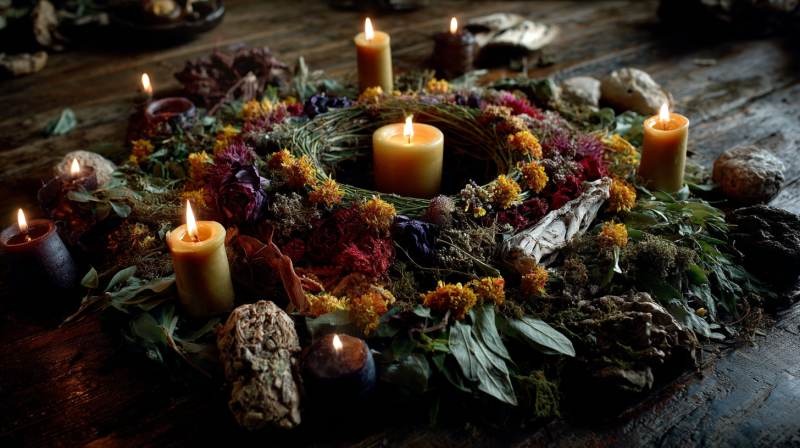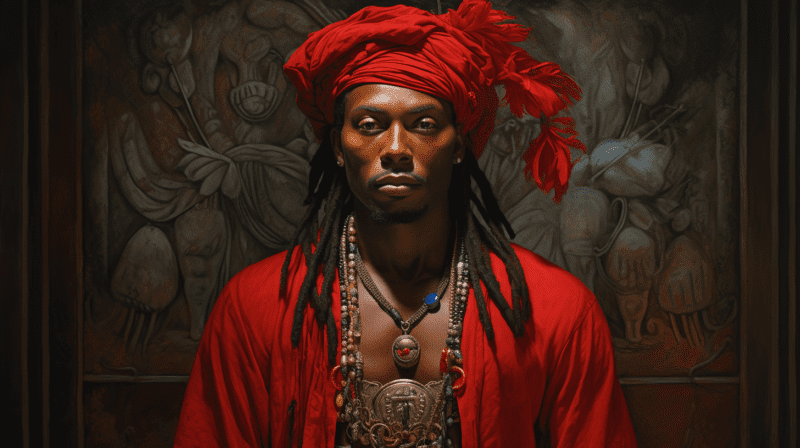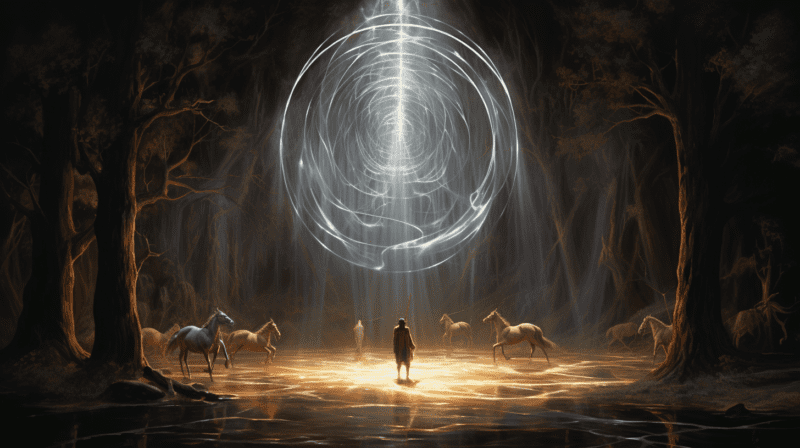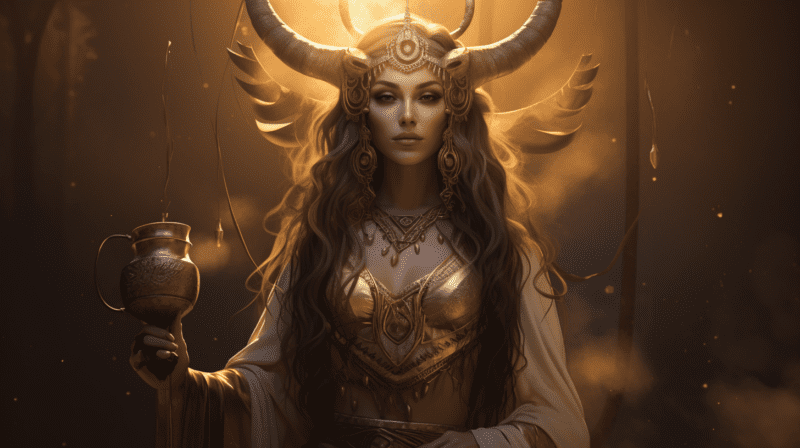Symbols: keys, torch, cauldron, knife, broom
Emblem: star, crescent moon
Color: black
Sacred number: 3
Time of day: night
Sacred dates: August 13
Hecate was initially connected with fertility and childbirth, but she has since come to be associated with the moon, cronehood, the underworld, and many other aspects. Hecate, often known as the Goddess of the Witches, is associated with spirits and the spirit world. She is thought to be the gatekeeper between graveyards and the mortal realm in various modern Pagan traditions. Her connection to the moon is particularly significant, as she is believed to possess the power of lunar magic. Additionally, Hecate is revered as a wise and transformative goddess who guides individuals through times of transition and change. Her influence extends beyond the boundaries of mortal existence, reaching into the realms of the divine and the mystical.
She is often depicted as a guardian of the vulnerable, including fighters and trackers, livestock raisers and herdsmen, and youngsters. Nevertheless, she is not a nurturing or motherly guardian; instead, she is a deity who will take vengeance upon people who harm those under her care. She is sometimes shown as a champion of the downtrodden, including warriors and hunters, herders and shepherds, and children. Nevertheless, she is not a compassionate or motherly protector; rather, she is a goddess who will exact revenge on those who harm the people she shields.
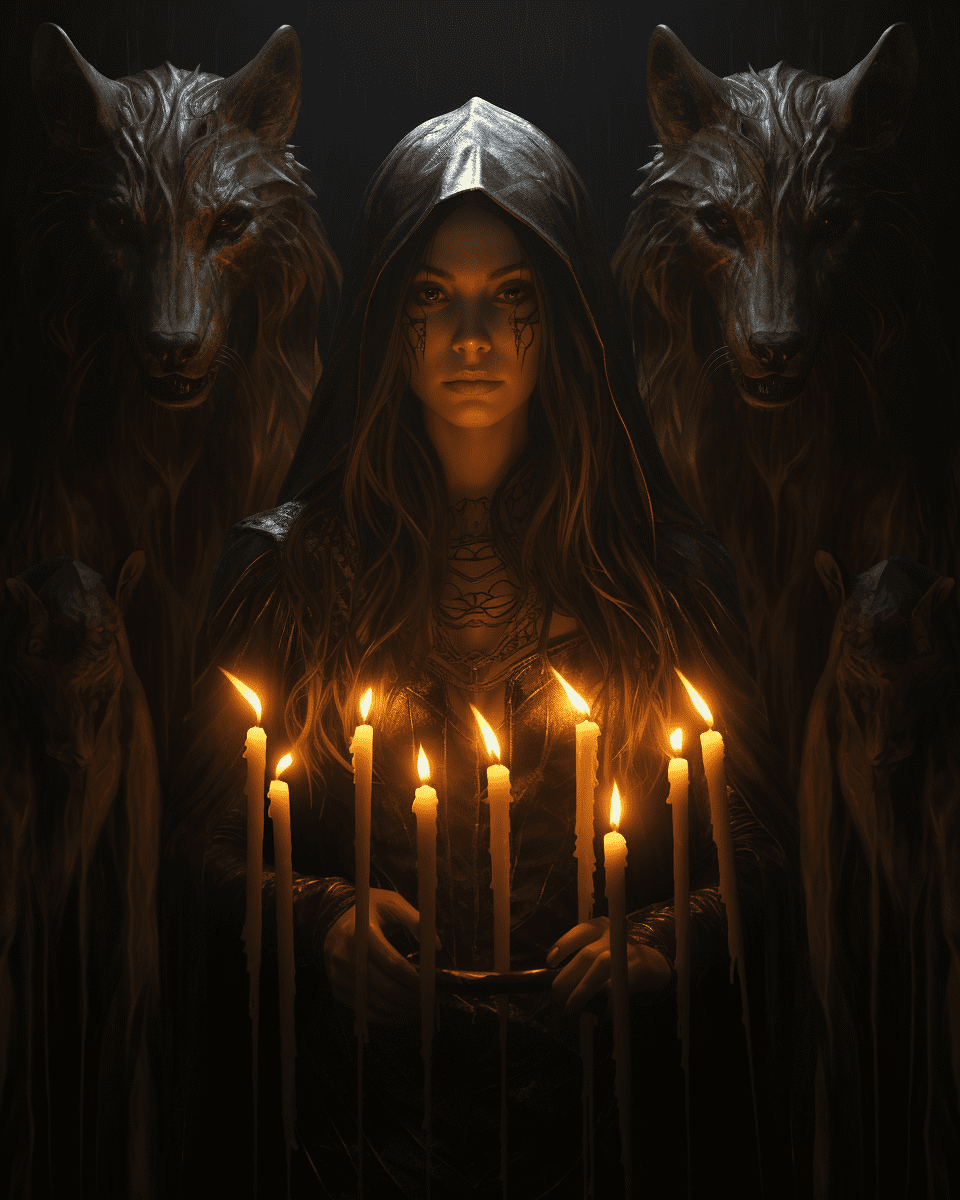
Her name can be spelled Hecate or Hekate with a K. Both spellings are correct. Her origins are earlier than those of the Greek pantheon. She is the queen of the night, the goddess of witchcraft, and one of the spiritual world’s rulers. She serves as a bridge between souls and people, patrolling the line between life and death. She is revered as the ultimate authority in the realm of witchcraft, commanding both fear and respect. Beyond the Greek pantheon, her influence extends far beyond mortal existence, as she governs the spiritual realm with wisdom and guidance. As the queen of the night, Hecate rules over darkness, harnessing its mysteries and secrets.
She embodies the essence of witchcraft, possessing a deep understanding of its ancient arts and practices. Hecate stands as a guardian of boundaries, existing in the liminal space between life and death. She is the guide who navigates souls through the transition, ensuring their safe passage to the afterlife. With her insight and intuition, Hecate serves as a mediator between humans and spirits, facilitating communication and connection. Her presence is synonymous with mysticism and magic, inspiring awe and fascination. To invoke Hecate is to tap into the forces that shape the spiritual world, embracing the enigmatic power she embodies.
Wisdom, choice, victory, vengeance, and travel are all under her control. If you invoke her for justice, especially for sexual crimes, she is effective. You can also ask for her assistance if you are unable to obtain justice through legal methods, dogs, fertility, war triumphs, healing, or a quick and painless death. She has the ability to remove ghosts, yet she may also cause ghost infestations. She is adept with plants and herbs, and her palace is home to a famous magical garden.
While Hecate is commonly known as the Greek goddess of witchcraft, magic, and crossroads, she also had a connection to dogs. In Greek mythology, Hecate frequently appeared with a pack of barking dogs. These dogs were said to be her loyal companions and were known as the “hellhounds of Hecate.” They were believed to have the ability to see spirits and guide souls to the underworld.
These dogs were not ordinary canines but rather supernatural beings associated with the goddess. Their barking was thought to ward off evil spirits and protect Hecate and her followers. The association of dogs with Hecate further emphasized her role as a guardian and protector.
This lesser-known aspect of Hecate’s mythology highlights the diverse and multifaceted nature of ancient deities, with different attributes and associations that may not be immediately apparent.
Visions and dreams are how she answers petitions. Look for signals after calling her name at a crossroads (literal or metaphorical). They could be subtle, such as a shadowy figure or animals (cats, dogs, snakes, or dragons). Midwives, witches, healers, herbalists, and dog lovers and rescuers are among her favorite people to assist.

